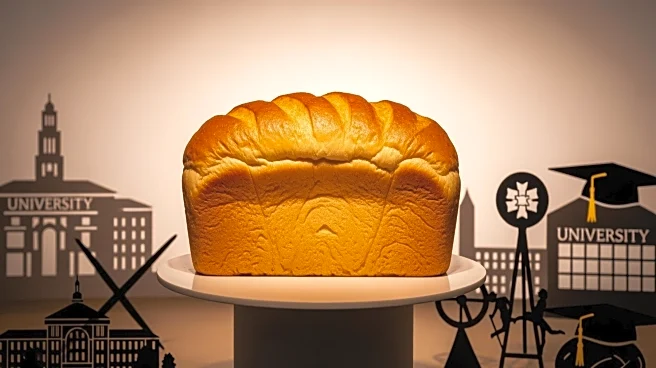What's Happening?
Ron Shaich, the founder of Panera Bread, has donated $20 million to Clark University in Worcester, Massachusetts, marking the largest single gift in the institution's history. This donation is intended to support a transformation plan announced by Clark University President
David Fithian in June. The plan aims to address challenges such as lower-than-expected enrollment and a reliance on international students, who make up 34% of the student body. The university plans to cut faculty by up to 30% over the next three years and shift its degree focus to areas including climate, environment & society, media arts, computing and design, and health and human behavior.
Why It's Important?
This significant donation by Ron Shaich is crucial for Clark University as it navigates a critical inflection point. The funding will help the university implement necessary changes to sustain its vibrancy and excellence amid challenges such as declining enrollment and potential impacts from restrictions on international students. The shift in degree focus reflects a strategic move to align with emerging global issues and industries, potentially enhancing the university's appeal to prospective students and positioning it as a leader in these fields.
What's Next?
Clark University will proceed with its transformation plan, which includes faculty reductions and a shift in academic focus. The university will likely continue to adapt to changes in student demographics and external pressures, such as those from the Trump administration regarding international student policies. The success of these initiatives will be critical in determining the university's future trajectory and its ability to attract and retain students.
Beyond the Headlines
The donation and subsequent transformation plan may have broader implications for higher education institutions facing similar challenges. It highlights the importance of strategic philanthropy and adaptive strategies in maintaining institutional relevance and competitiveness. The focus on climate, media arts, and health may also reflect broader societal shifts towards these critical areas.















